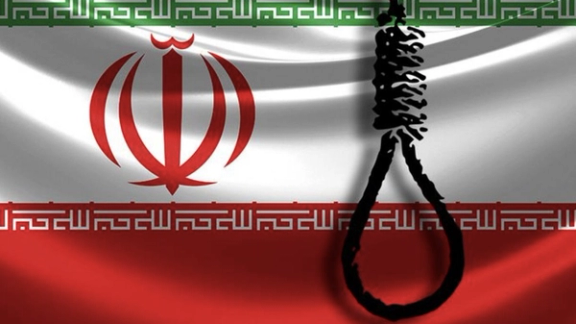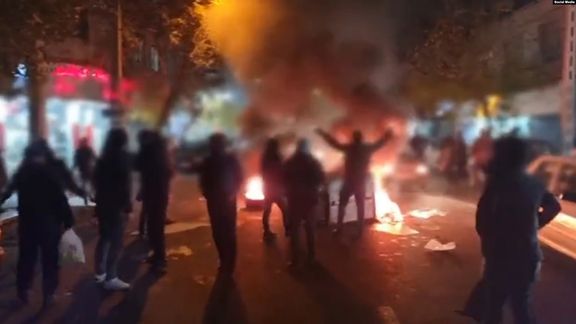Iran’s Regime Intensifies Harsh Sentences For Protesters To Instill Fear

Protests in Iran continue online and via political graffiti as the Islamic Republic is issuing death sentences, long prison terms and floggings to quash voices of dissent.

Protests in Iran continue online and via political graffiti as the Islamic Republic is issuing death sentences, long prison terms and floggings to quash voices of dissent.
According to reports, some of the protesters who were injured during the regime’s crackdown refrain from going to hospitals in fear of arrest, leading to deaths in some cases.
The council of the country's student unions cited reports Tuesday that Ghazal Amiri, a student at Shiraz University, was beaten by security forces during the protests on September 10, but was not taken to hospital. The following day, her condition worsened, and she died after finally being transferred to the hospital.
There are many similar deaths that are not revealed to the media because their families are under pressure by intelligence agents. Iran International also obtained information about a young woman who fell to her death from the fourth-floor window of her home when security forces came looking for her.
In addition to over 500 protesters who have been killed during nearly four months of unrest, more than a dozen detainees have been sentenced to death. The Islamic Republic has already executed four people over their participation in demonstrations.
Security forces and the hardliner Judiciary have claimed that many of the dead protesters committed suicide or had medical preconditions.

Meanwhile, there are several reports about the deteriorating health conditions of the detained protesters. According to reports obtained by Iran International, the teeth of Saleh Mirhashmi, a protester sentenced to death, were broken and his eardrum was also ruptured under torture in prison. Mirhashmi has recently married, and his mother is under immense psychological pressure due to her son's condition.
The number of protesters who are given death sentences in the regime’s courts is also increasing. Ebrahim Naroui, who was arrested during protests in the southeastern city of Zahedan, was sentenced to death by the Sixth Branch of the Revolutionary Court of the city on the charge of "Moharebeh". Three more Iranians arrested during antigovernment protests in the northern city of Nowshahr were sentenced to death on Tuesday. Iran's judiciary said Monday that a court has sentenced three more protesters to death for “war against God”.
Political activist Heshmatollah Tabarzadi, who already served several years in the regime’s prisons, was also sentenced to “corruption on earth,” a sentence punishable by death. He was arrested on September 20.
The judiciary’s branch in Kordestan province also announced Tuesday that Pouria Javaheri is also facing a death sentence for “Moharebeh.” He was arrested in the city of Kamyaran during protests late in November.
“Moharebeh” and "corruption on earth" are vague Islamic-Arabic Sharia concepts that in the lexicon of the Iranian regime means a death sentence. The Islamic Republic considers many acts of opposition or defiance against the regime as “Moharebeh” and "corruption on earth", with the maximum punishment of death.
Clerical judges who take orders from the hardliner Judiciary convict people to death without a real trial, often with no defense lawyers and behind closed doors. The defendants have no way of challenging state evidence or introducing witnesses.
According to the Norway-based Iran Human Rights Organization, at least 109 Iranian protesters are currently at risk of execution or facing death sentences, but the number seems to be much higher with new cases revealed almost every day. The rights organization also stressed that repression through arbitrary arrests, physical torture, sexual assault and rape in detention and the mass issuance of sentences has been intensified.